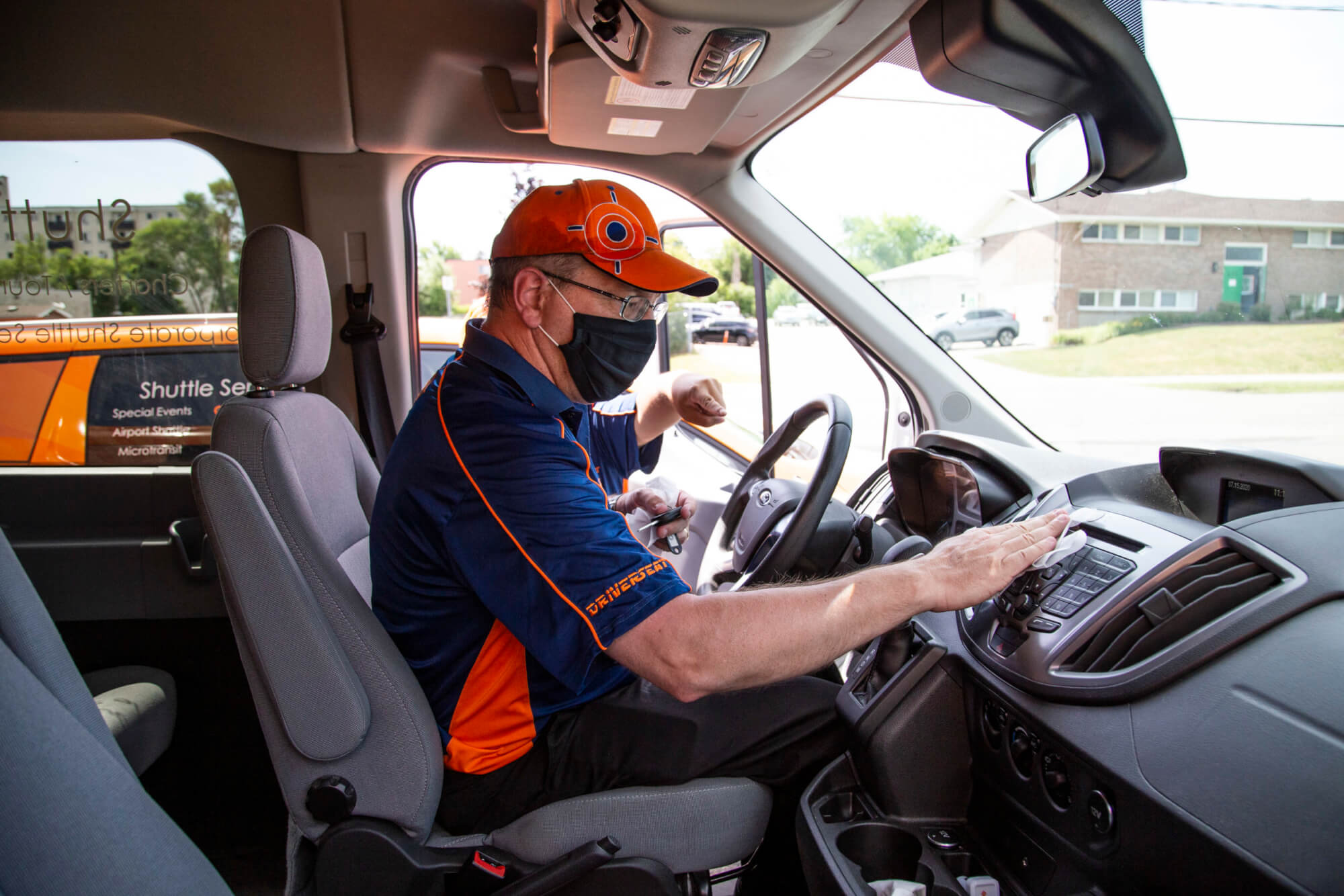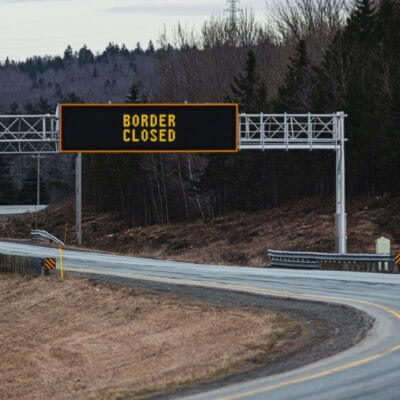Operating a transportation business in a border city has been an uninvited, yet interesting challenge over the past 18 months. Learning on the fly has always been our strong suit, and it was certainly put to the test providing essential services including private van service, Airport Shuttle, interprovincial charter services, and cross-border services.
Travel advisories, restrictions, screening, and closures have been a part of the “temporary” new normal when crossing the International Bridge that connects the twin cities of Sault Ste. Marie, Ontario and Sault Ste. Marie, Michigan.
In 2019, there were over 1.35 million crossings between the twin cities. In 2020, that number dropped to 340,318, or almost 75%. The remaining being primarily comprised of commercial and commuter crossings (when work could not be done from home). Some exceptions were made for spouses; but for the most part, the borders remained closed to non-essential travel.
While things began to open up at Canadian land crossings to vaccinated U.S. residents in early August 2021, crossing borders still remained a challenge for those using small regional airports connecting to the major hubs.
Students, workers, and those visiting family on the Canadian side would either have to fly from the U.S. to a Canadian hub and require several connecting flights with long layovers to get to their destination; whereas they could simply have one connection and fly into a regional airport and take a ground transfer across into Canada and vice versa. This saved money, several hours and sometimes even days on trips that would require an overnight or multi-night stay in Canada.
As quarantine requirements have been removed for vaccinated travelers crossing into Canada, proof of a negative COVID-19 test is still required with an additional test on Day 1 of arrival to Canada. In addition, uploading all required documents (tests, accommodations, etc.) via the ArriveCan app (smartphone or web) is a requirement. We had clients that had their travel plans halted temporarily while this information was uploaded to the ArriveCan system. In most cases, the travelers would be immediately subject to refusal at the border and turned around.
While the vast majority of non-essential travelers are eagerly waiting to enter the U.S. from the Canadian side by car, the border restrictions to only essential traffic are still in place and have been extended until October 21, 2021; when, at that time, a determination will be made to begin open the U.S. border to non-essential vaccinated individuals (children under 12 would be an exception).
Until then, we’ll continue to help connect travelers for business, school, family, and other permitted travel at land crossings in Sault Ste. Marie. To get started, please download the Driverseat App and set up your free account. For more information about our services and link to the Driverseat App, please visit us at www.driverseatinc.com/locations/driverseat-sault-ste-marie
DISCLAIMER:
Please note: the information herein is based on knowledge gathered in our cross-border, which is continually changing and evolving to suit current pandemic conditions on both sides of the border. For the most up-to-date and correct information for cross-border and international travel to Canda, please visit the Government of Canada’s COVID-19 Travel website at https://travel.gc.ca/travel-covid
ArriveCan App Info
https://www.canada.ca/en/public-health/services/diseases/coronavirus-disease-covid-19/arrivecan.html




